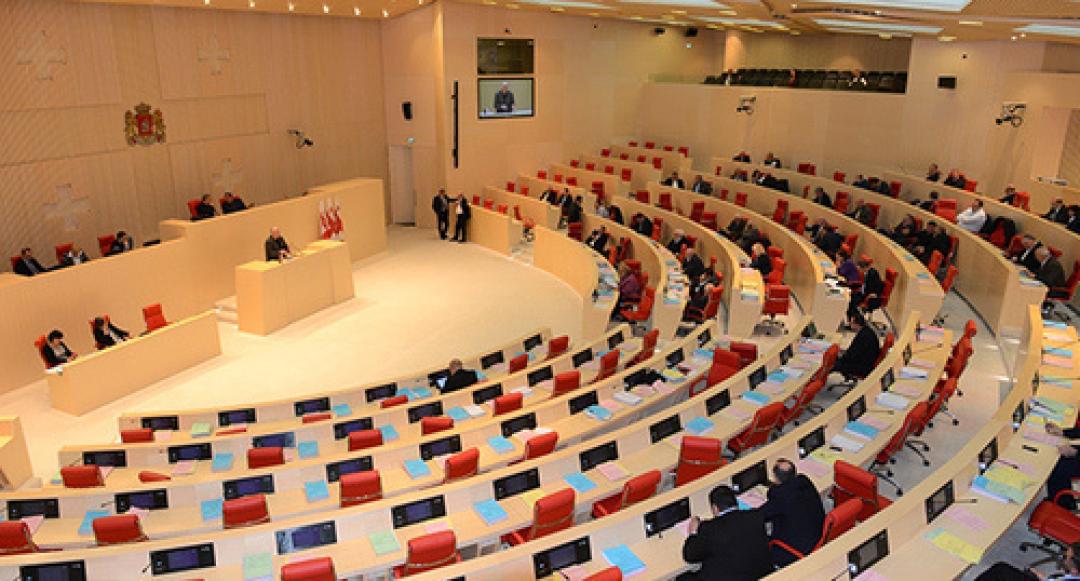
Controversy over Law on Foreign Agents in Georgia

On February 14, members of the "People's Power" faction, founded by the MPs who left the Georgian Dream party, announced that they had drafted a bill on the operations of foreign-funded organizations and would formally register it in parliament in the coming days. While opposition lawmakers questioned the modifications, Georgian Dream parliamentarians backed the idea.
On February 16, Claude Kern and Edite Estrela, PACE rapporteurs for Georgia, advised Georgian political parties not to accept the proposed foreign agent law put out by the "People's Power" party, warning that its adoption would have a chilling effect. According to the rapporteurs, the draft law raises several issues regarding its conformity with democratic and human rights principles.
On the same day, Ned Price, a U.S. Department of State spokesman, said, "We are profoundly worried about its consequences for freedom of expression and democracy in Georgia." Moreover, he stated that the proposed law would stigmatize and muzzle the independent voices of Georgian individuals committed to constructing a better future for their communities.
On February 17, foreign agent law was denounced by the Georgian Public Defender's Office, which said that it does not conform with international and local national human rights norms and is incompatible with the fundamental foundations of a contemporary democratic state. The Public Defender's Office noted in a statement that the Georgian Constitution's guarantee of freedom of association and expression is a necessary prerequisite for the existence of a democratic society, which allows non-governmental and media organizations to contribute to the promotion of democracy jointly, the rule of law, and the realization of human rights. The Public Defender's Office emphasized that similar clauses in the laws of the Russian Federation and Hungary regarding freedom of association and expression, as well as the right to privacy, have drawn criticism from the European Court of Human Rights, the Court of Justice of the European Union, the Office for Democratic Institutions and Human Rights (OSCE/ODIHR), the Council of Europe Commissioner for Human Rights, the Venice Commission, and the UN Special Rapporteur on Torture.
On the same day, Strategy Agmashenebeli MP Paata Manjgaladze said: "According to the logic of the so-called People's Power bill, [Parliament President] Papuashvili was an agent of foreign influence because he did not work anywhere else except GIZ, [chairman of the ruling party Irakli] Kobakhidze also turns out to be an agent of foreign influence, because he was a hired expert of USAID." According to him, declaring a person and organization as agents of foreign influence based only on the funding source is the Russian model. "The so-called People's Power project is a direct copy of Russian law. As for the American law, it is almost 100 years old and was adopted as a curb for the propaganda of Nazi Germany, and many changes have been made to this law since then. In 2012, a law was adopted in Russia, and all organizations and legal persons financed by the West were declared agents; they were restricted from conducting lectures and television broadcasting, and journalists were restricted from carrying out their activities. Belarus, China, and Venezuela also adopted such a law. Georgian Dream repeats their path one by one," Manjgaladze added.
See Also


Simonyan: “Armenia Should Trade with Turkey and Azerbaijan Instead of Closing Borders”

Mirzoyan Meets US Deputy Assistant Secretary Joshua Huck

Azerbaijani President Holds Talks with UAE and German Business Delegations on Economic Cooperation

Grigoryan Confirms Armenia’s Readiness to Dissolve OSCE Minsk Group Upon Peace Treaty Signing

